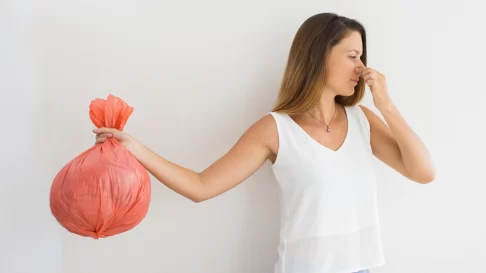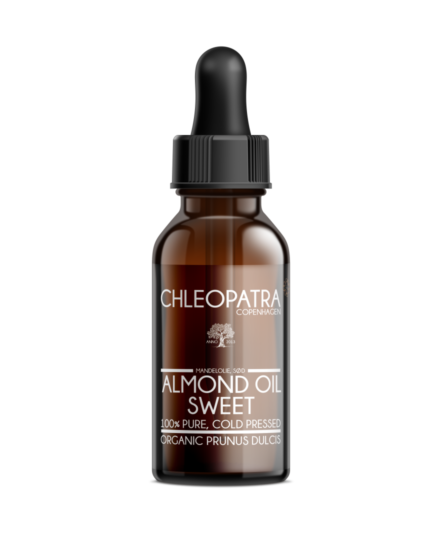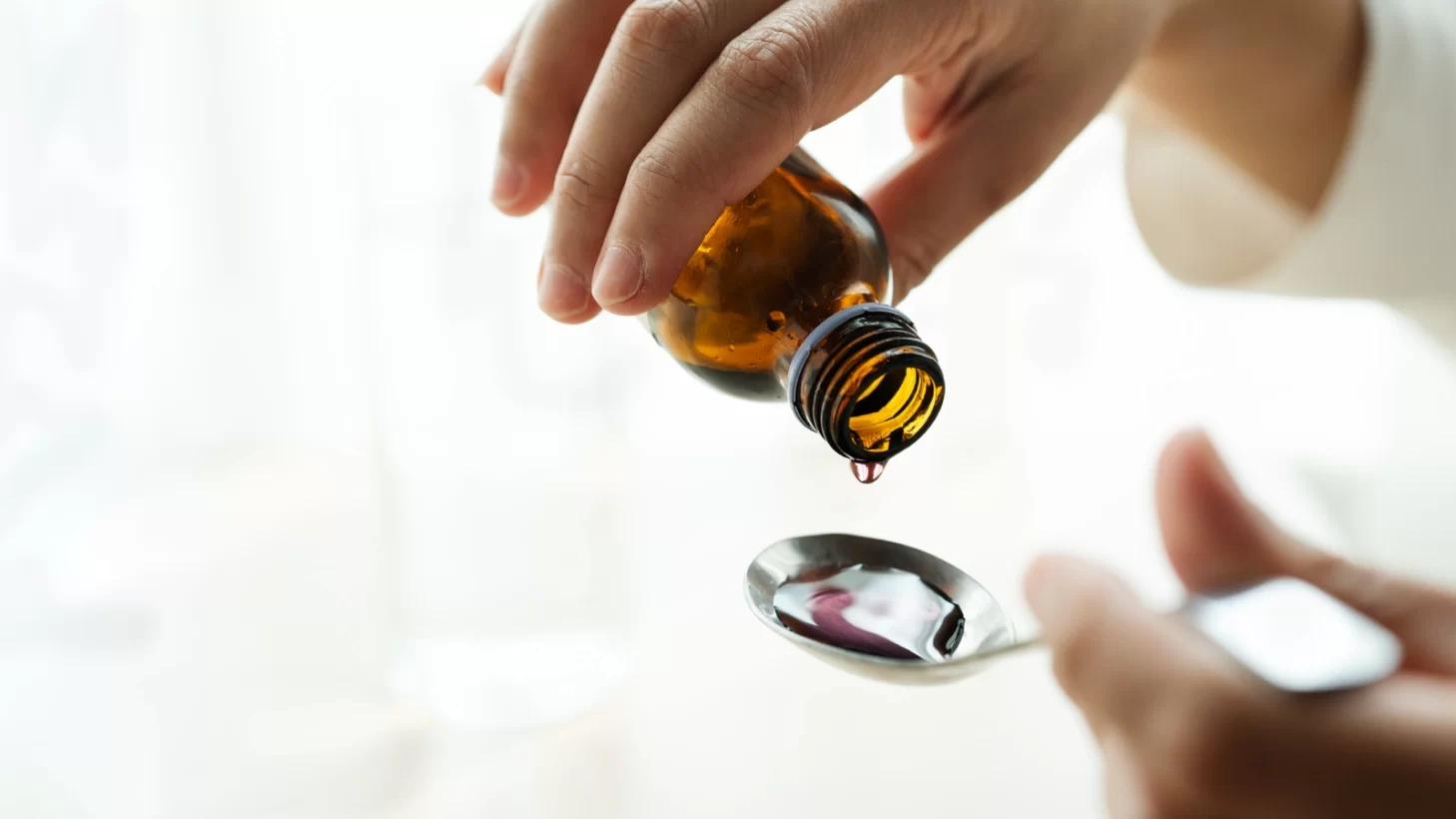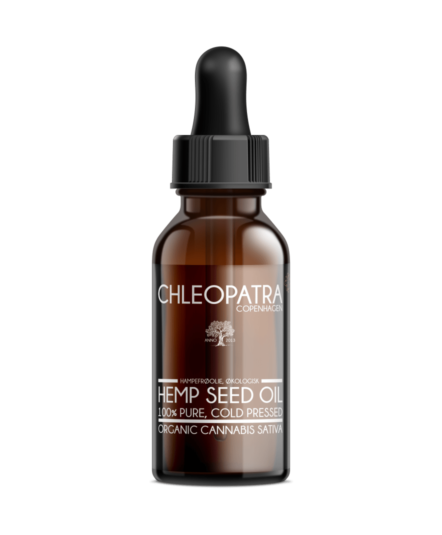Essential oils are highly concentrated volatile oils that in their pure form are far too powerful for our skin. That's why you should always Mix your essential oils with other remedies. For example, it could be vegetable oils to achieve the correct dosage.
Essential oils have long been used for various purposes, including aromatherapy, beauty products and home care.
These naturally derived oils have potential health benefits, but understanding how to properly dose essential oils is crucial to avoid potential risks.
This article will guide you through the dosage of essential oils, help you understand their applications and provide you with the necessary information to use them safely and effectively.
Choose the right dosage of essential oils
Because essential oils are so concentrated and consist of highly potent substances, a working knowledge of how to use them safely is also essential for safe use.
The potential risks of an essential oil depend on both the compounds in the oil, the dosage and frequency used and the method of application.
It can therefore be difficult to make precise judgements when it comes to dosage, but below you will find a good guide you can use as a starting point.
Essential oils
Essential Oils
Essential Oils
Essential Oils
Essential Oils
Essential Oils
Essential Oils
Essential Oils
Essential Oils
Warning
It is important that you use the correct dosage of essential oils. Do not use undiluted essential oils directly on the skin. They can cause a burning sensation, skin irritation and photosensitivity. However, there are a few exceptions to this rule. Some believe it's acceptable to use non-irritating oils like lavender or tea tree undiluted on burns, insekt bites, pimples and other skin rashes, as long as you don't have extremely sensitive skin. We recommend that you ALWAYS dilute your essential oils before applying them to the skin.
The importance of correct dosing
When it comes to essential oils, correct dosage is crucial. Although they have many benefits, overdosing or improper use of essential oils can have negative effects on health. It's important to understand how to use them safely and effectively to avoid potential risks.
Test for allergies and skin irritation
Before using a new essential oil for the first time, it can be a good idea to do a patch test. We recommend that you always use this method to avoid unpleasant surprises - and not just with essential oils, but with everything you put on your skin.
Read more about the test hereHow to dilute your essential oils
Concentrated substances are rarely intended for use as "is" - and essential oils are absolutely no different.
There are only very rare cases where you don't want to dilute the powerful essential oils before applying them to the skin.
Dilution of essential oils is done by adding a drop (or more) of the essential oil to a base oil (vegetable oil), such as jojoba oil or almond oil.
This not only provides a good medium for the oil to absorb into the skin, but also spreads the oil over a larger surface area of the skin for a more effective effect.
Even essential oils with strong safety concerns can be used safely if diluted correctly.
Knowing how to dilute correctly will help you use essential oils well and safely.
Why essential oils need to be diluted?
Proper dilution of essential oils provides a measure of safety against local irritation, sensitivity, photosensitivity and sensitisation.
Diluting oil is important for two safety reasons.
One, to avoid skin reactions such as: irritation, sensitisation and phototoxicity.
Two, to avoid systemic toxicity, such as foetal toxicity, hepatotoxicity, carcinogenicity and neurotoxicity.
Adverse skin reactions are obvious when they happen, but systemic toxicities are not necessarily.
Skin reactions are completely dilution dependent and safety guidelines are in place to minimise the risk.
In other words, we dilute essential oils before applying them to the skin to minimise side effects and systemic toxicity.
Potential risks of overdose
Essential oils are highly concentrated and powerful, and using too much can have negative effects. Overdosing essential oils can cause skin irritation, allergic reactions, respiratory problems and other health complications. Therefore, proper dosage is essential to avoid these risks.
Choose the right dosing ratio
How much should you dilute with?
How much to dilute with depends on several factors, including but not necessarily limited to:
- the overall toxicity of the essential oil itself, including phototoxicity
- your age
- your health issues, such as bleeding disorders, compromised immune system, etc.
- if you are pregnant or breastfeeding
- if you have sensitive skin
- if you use prescription medication (usually only an issue if you use orally, but still a consideration)
General guidelines for diluting essential oils
The absolute best way to dilute essential oils is by using vegetable oils. In principle, you can use any vegetable oil of your choice.
For general purposes, the dilution rate for essential oils is General 2%. This means that for every 2 drops of essential oil, it must be mixed with 98 drops of a vegetable oil.
Always use the lowest dilution that gives you effective results by ensuring the safe use of essential oils.
For children and pregnant women, you should halve this dose so that the essential oil content is a maximum of 1%.
However, as a starting point, we recommend that pregnant women avoid using essential oils altogether unless strictly necessary.
Older people and those with relatively sensitive health should also stick to the one per cent for essential oil blends.
If you find an essential oil irritating but want to use it and have determined that the irritation is not caused by an allergy, try massaging the diluted mixture into the soles of your feet. The oil will not irritate the skin but will still reach the body.

Dilution by age group
6 months - 24 months - avoid unless absolutely necessary
2 - 6 years - 0.25% Dilution (1 drop per 4 teaspoons of base oil)
Over 6 years - 1% dilution (1 drop per tsp base oil; 6 drops per 30ml)
Average healthy adult - 2% dilution (2 drops per tsp base oil; 12 drops per 30ml)
Temporary health problem - 3% - 10% dilution (2-20 drops per tsp base oil; 12-120 drops per 30ml)
Remember that the lower the essential oil dilution you use, the lower the risk of side effects. Be very careful with high dilutions.
Start with lower doses
When starting to use a new essential oil, it's best to start with lower doses. This allows you to evaluate your tolerance and see how your body reacts. Gradually, the dosage can be increased as needed.
Adjust the dosage as needed
The dosage of essential oils can vary depending on the purpose of use and the specific oil. Some oils may be more potent and require a lower dose, while others may require a higher dose to achieve desired results. It is important to follow the guidelines provided and adjust the dosage as needed.

Special considerations when dosing
Pregnancy and breastfeeding
During pregnancy and breastfeeding, it is important to be especially careful with essential oils. Some oils can negatively affect the foetus or breastfeeding. It is recommended to avoid certain oils during this period and always consult a doctor or midwife before using essential oils.
Children and elderly
Both children and older people may be more sensitive to essential oils. Lower doses are usually recommended for these groups. In addition, it is important to choose oils that are safe and suitable for children or the elderly.
Sensitive skin and allergies
If you have sensitive skin or allergies, it's important to be aware of essential oils' potential to cause skin reactions. Do a patch test on a small area of skin before using a new essential oil to check for irritation or allergic reactions.
Use of pure essential oils (undiluted)
Sometimes an essential oil can be used without dilution for an acute, short-term issue.
An insekt bite, burn or sting can be a good reason to use an essential oil in this way.
Choose wisely and don't make a habit of using essential oils undiluted. Not only can some essential oils irritate the skin, but you also increase the risk of sensitisation and unnecessary allergies.
You need to dilute your essential oils with a vegetable oil
We always recommend using vegetable oils to dilute your essential oils.
In principle, you can use any vegetable oil, but our customers most often recommend the following oils.
Carrier oils
Vegetable oils
Vegetable oils
Vegetable oils
Vegetable oils
Vegetable oils
Storage and shelf life
Proper storage of essential oils
To preserve the quality and shelf life of essential oils, it's important to store them correctly.
Oils should be stored in a cool, dark place, preferably in dark glass bottles to protect them from light and heat.
Shelf life and expiry date
Essential oils have a limited shelf life and their quality can decline over time.
It's important to check the expiry date on the bottle and avoid using oils that are too old. Always use fresh oils for best results.
Morten Pauch
CEO & Oil Magician
One of two life souls. Daily driver on the webshop and with a keen interest in the small details. I started chleopatra.dk in 2013 - at the request of my dear wife Liezel. The idea was simple. To create a webshop selling pure vegetable oils for skin and hair. I soon realised that I didn't know much about these products. Fortunately, that has changed, as I have continuously educated myself, researched topics and continue to stay informed on the topic of natural skin and hair care products.
As a result, I now have a wealth of knowledge about oils, butter, clay and many other natural ingredients for healthy skin care. Oils and pure cosmetics have truly got under the skin. Born without much thought about natural cosmetics and hygiene, but have been opened up to this new world that really dates back to the earliest times. It's this new interest in facts and details that you'll find and learn more about in my articles here on the blog and when you call us.
Final thoughts
Dosage of essential oils is essential for safe and effective use.
By understanding the different applications, following proper dosage guidelines and taking individual needs into account, you can enjoy the benefits of essential oils without risking health complications.
Frequently asked questions (FAQs)
Can I consume essential oils?
No, most essential oils are not suitable for ingestion. They should usually only be used externally or inhaled after proper dilution and advice from a professional.
Can I use essential oils directly on my skin?
It is usually recommended to dilute essential oils with a carrier oil, such as almond oil or coconut oil, before applying directly to the skin. This helps to avoid skin irritation and overdose.
What should I do if I experience side effects after using essential oils?
If you experience side effects such as skin irritation, respiratory problems or allergic reactions after using essential oils, stop using the oil and seek medical attention if symptoms persist or worsen.
How can I tell if an essential oil is good quality?
A good quality essential oil should be pure, genuine and free from additives or synthetics. Choose oils from trusted manufacturers who perform tests and indicate the purity and quality of their products.
Are there any essential oils I should avoid?
There are certain essential oils that should be avoided or used with caution due to their potential to cause side effects. These include toxic oils such as bitter almond oil and pennyroyal oil. Always be aware of safety precautions and follow recommendations from professionals.




















































When you write child, when would you say you are a child?
I 16.
We're talking primarily up until the teenage years begin. In principle, it is up to the parents in general, but in your case, where you are looking for it yourself, it must be a matter of judgement. The half dosage for "children" is primarily recommended because children's skin is more delicate than adults'. But at 16 years old, your skin should probably not be nearly as sensitive anymore. However, if you know you have relatively sensitive skin, we would still suggest you use half the dosage. And always remember to test for allergies first.